CAPTCHA is a security tool that verifies human users by presenting challenges like distorted text or image identification, distinguishing them from automated bots to protect online platforms from abuse and fraud.
When entering credentials or credit card information on websites, you might be asked to copy a series of words or a math sum to continue. While this is usually a quick step before you can continue your activity, many people wonder what a CAPTCHA is and what its purpose is.
In this post, we’ll cover CAPTCHA’s meaning and use cases and explain how CAPTCHA verification works.
What Is CAPTCHA?
CAPTCHA — which stands for “Completely Automated Public Turing test to tell Computers and Humans Apart” — is a security measure used on websites to differentiate between human users and automated bots.
It typically presents a challenge that is easy for humans to solve but difficult for automated systems, such as identifying distorted text, selecting images with specific objects or solving simple puzzles. CAPTCHA helps prevent spam, automated data scraping and other malicious activities by ensuring that only genuine users can access certain online services or perform specific actions.
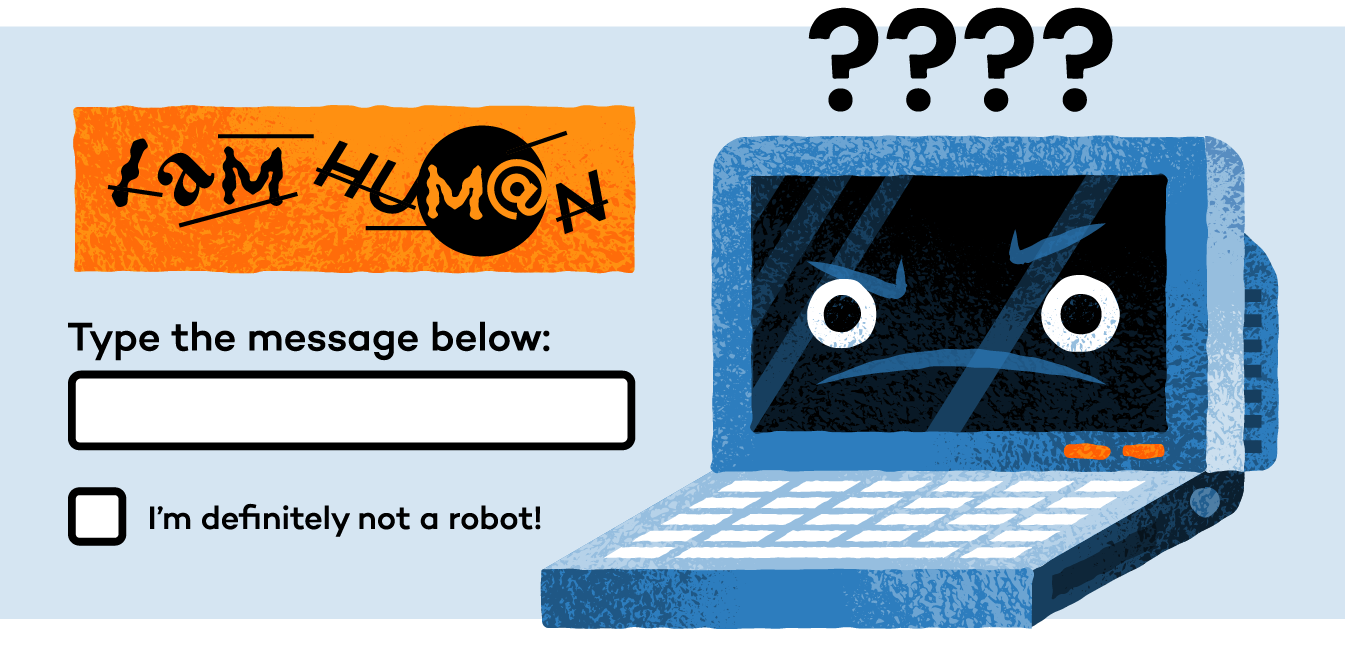
CAPTCHA Use Cases
CAPTCHA serves as a crucial security tool on the internet, designed to distinguish between human users and automated bots. Here are some common ways CAPTCHA is used to enhance online security and user experience:
- Preventing spam: CAPTCHA helps block automated bots from submitting spam comments, fake reviews or bulk messages on websites and forums.
- Securing online forms: It ensures that only human users can complete forms such as registrations, login attempts and contact forms, reducing the risk of automated attacks.
- Protecting online polls: CAPTCHA ensures that online surveys and polls remain accurate by preventing bots from skewing results through multiple or automated submissions.
- Safeguarding e-commerce: It helps stop bots from carrying out fraudulent transactions, creating fake accounts or engaging in other malicious activities on online shopping sites.
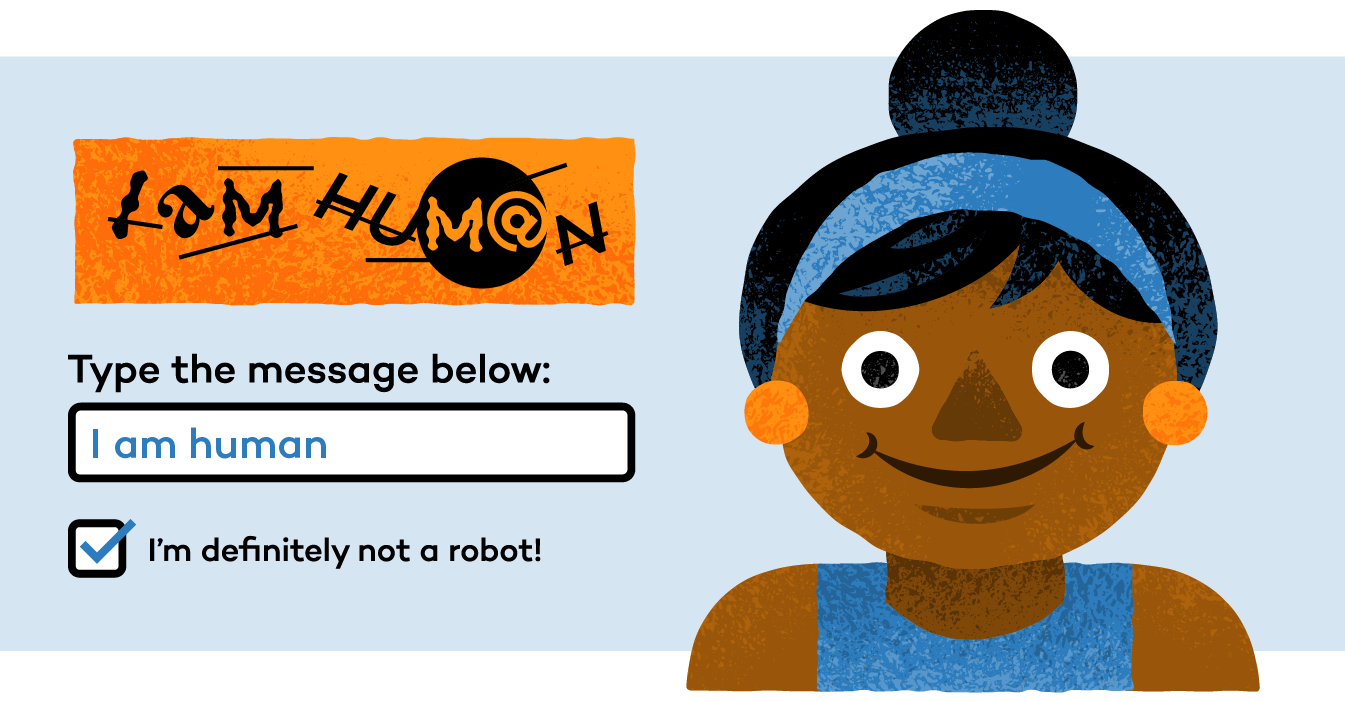
How Does CAPTCHA Work?
Understanding how CAPTCHA works can help you appreciate its role in keeping the internet secure. The process involves a few simple steps that ensure only human users can access certain online features or content. Here’s how it typically works:
- When you visit a website, CAPTCHA might ask you to complete a small task, like identifying distorted text, selecting specific images or solving a simple puzzle.
- These tasks are easy for humans to solve but difficult for bots. So, you would type the distorted characters exactly as you see them into a provided field. This proves that you’re a human and not an automated bot.
- Once you successfully complete the CAPTCHA, the website grants you access, ensuring that only genuine users can access certain features or content.
What Is reCAPTCHA?
reCAPTCHA is an advanced version of CAPTCHA developed by Google to distinguish between humans and bots, digitize books and improve AI training data. Unlike traditional CAPTCHA, which often requires users to decipher distorted text or solve simple puzzles, reCAPTCHA presents more user-friendly challenges, such as identifying specific objects in images or simply clicking a checkbox labeled “I’m not a robot.”
By analyzing various factors such as user behavior and interactions, reCAPTCHA can effectively determine if the user is human with minimal disruption to their experience.
How Does Image reCAPTCHA Work?
Image reCAPTCHA presents users with a grid of images and asks them to select those that match a specific prompt, like “Select all images with traffic lights.” This task takes advantage of human visual recognition skills, which are much more advanced than bots. Users click on the appropriate images, and reCAPTCHA analyzes their responses and behavior, such as mouse movements and the time it takes them to complete the task.
Once the user correctly identifies the images, reCAPTCHA verifies that they are human and allows them to proceed. Additional challenges might be presented if the responses are incorrect or suspicious. This method effectively prevents automated abuse while providing a straightforward and user-friendly experience.
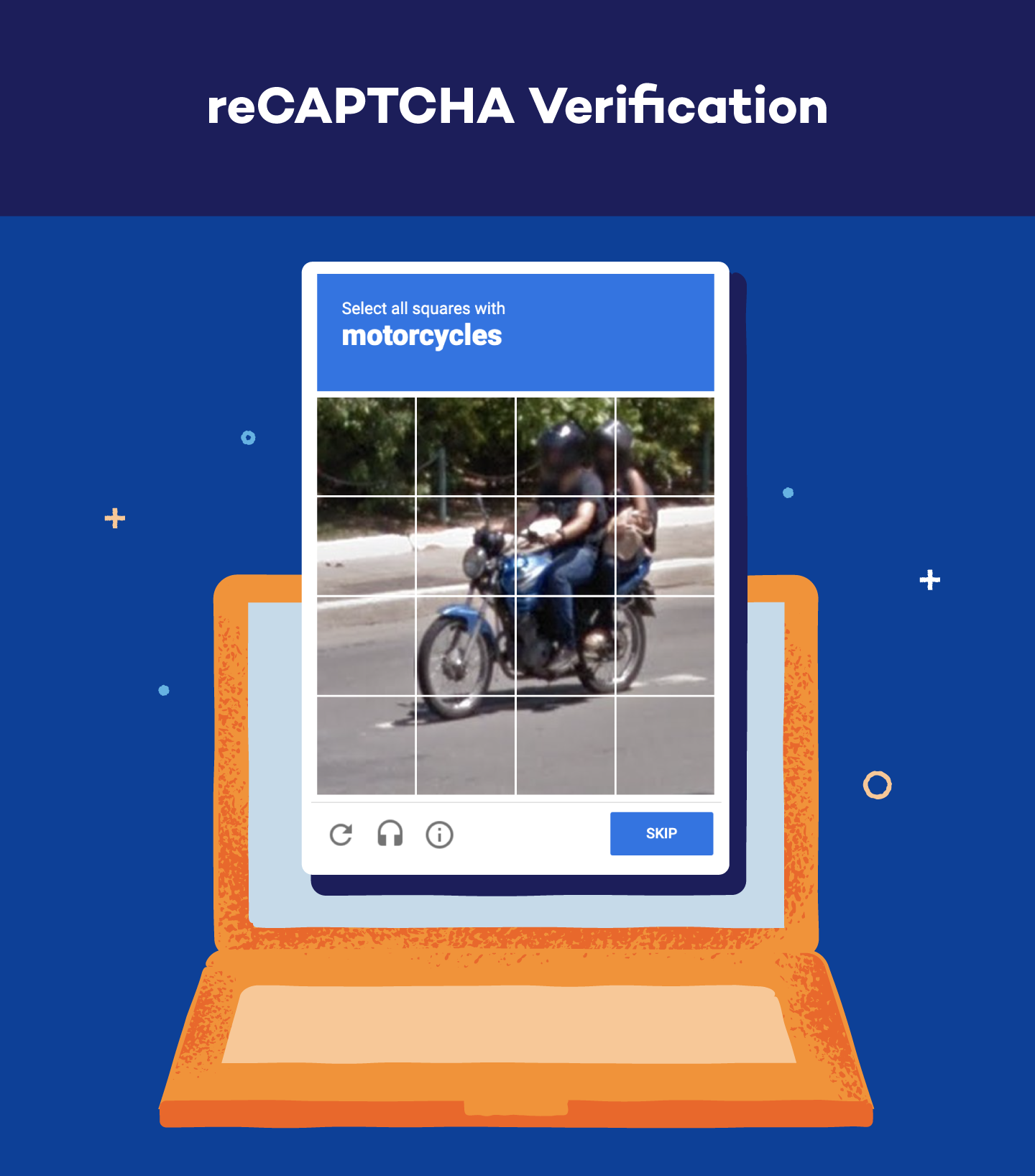
How Does Checkbox reCAPTCHA Work?
Checkbox reCAPTCHA simplifies the verification process by presenting users with a single checkbox labeled “I’m not a robot” that they can click to confirm that they are human. Behind the scenes, Checkbox reCAPTCHA uses advanced risk analysis techniques to determine if further verification is necessary based on the user’s interaction with the checkbox.
When a user clicks the checkbox, reCAPTCHA examines various factors such as their IP address, mouse movement and browsing patterns to assess the likelihood that the user is human. If reCAPTCHA determines that the interaction is suspicious or unclear, it may prompt the user to solve additional challenges, such as selecting images or typing in text verification.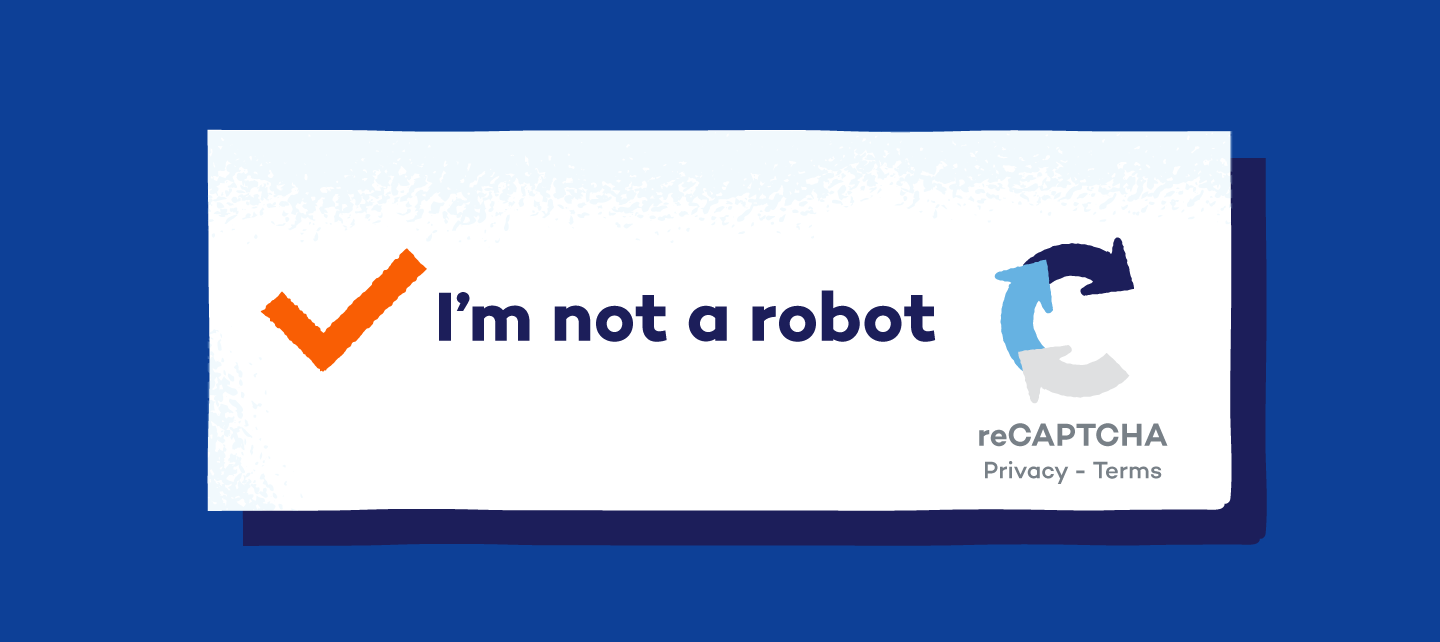
CAPTCHA Types and Examples
CAPTCHA comes in various forms to ensure online security while maintaining user accessibility. Here are some common types:
- Text-based CAPTCHA: Text-based CAPTCHAs require users to decipher distorted characters or numbers displayed in an image. Users can prove they are human by accurately typing these characters into a designated field. This is because bots typically struggle with optical character recognition.
- Math problem CAPTCHA: This type of CAPTCHA presents users with a simple arithmetic problem, such as adding or subtracting two numbers. By solving the math problem correctly, users demonstrate their human intelligence and gain access to the desired website or service.
- Audio CAPTCHA: Audio CAPTCHAs provide an alternative for users with visual impairments. They involve listening to and correctly transcribing spoken numbers or letters from an audio clip. This ensures accessibility for all users while maintaining security against automated attacks.
- Sliding puzzle CAPTCHA: Sliding puzzle CAPTCHAs require users to manipulate pieces of an image to form a coherent picture. This interactive challenge verifies human presence and enhances user engagement during the verification process.
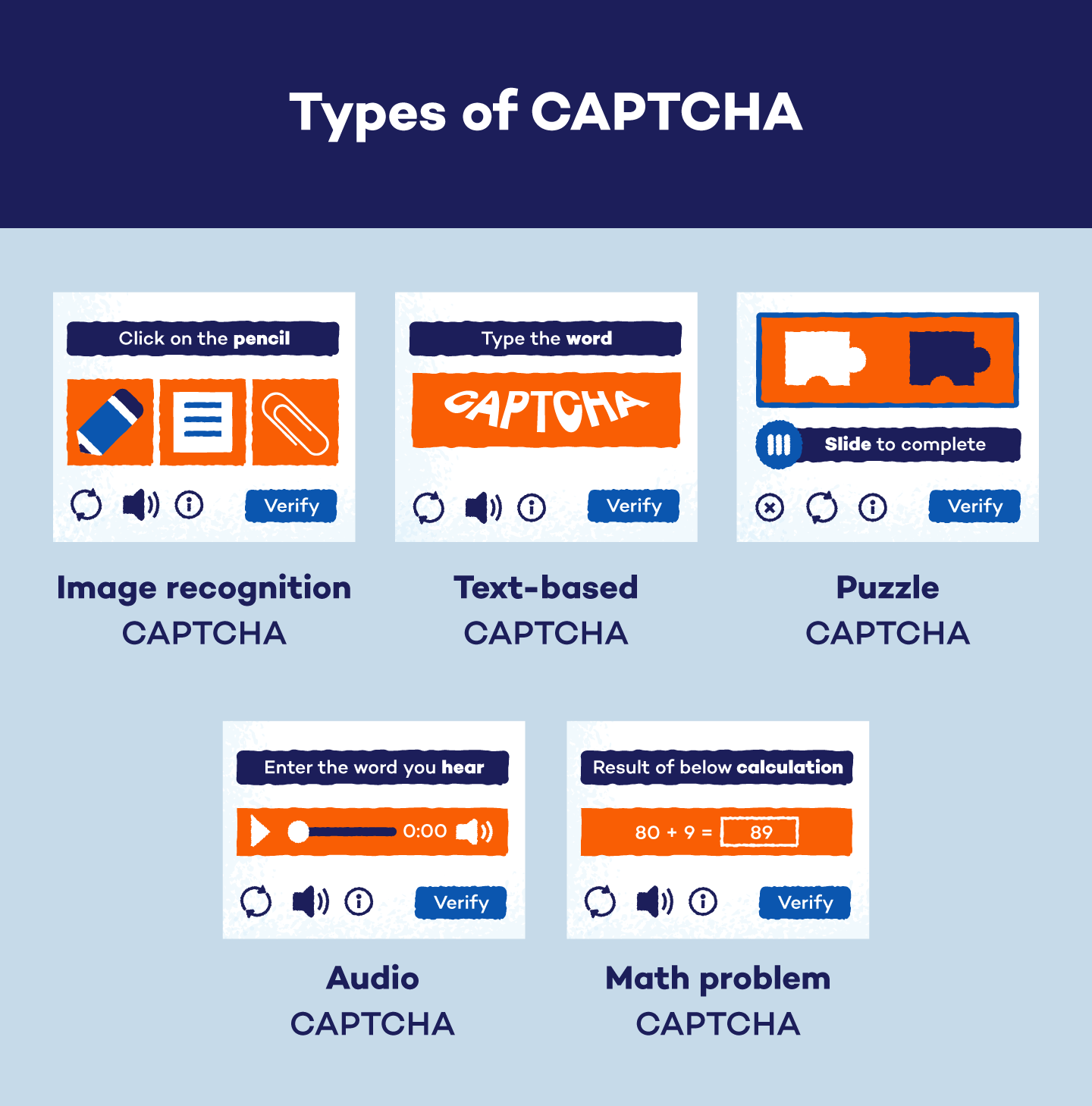
Is CAPTCHA Enough to Prevent Scammers?
CAPTCHA is vital to prevent scammers and bolster online security across various applications. It protects email addresses by thwarting automated bots that attempt to harvest them for spamming or phishing. In the realm of website registrations, CAPTCHA ensures that only legitimate users can create accounts, thereby preventing bots from generating fraudulent profiles or gaining unauthorized access.
It also safeguards the integrity of online polling and surveys by verifying that responses originate from real individuals rather than automated scripts, enhancing the reliability of collected data. Additionally, CAPTCHA helps in combating email worms and junk mail by verifying the authenticity of senders, which can reduce the dissemination of spam emails.
CAPTCHA FAQ
CAPTCHA is a critical tool in online security, but understanding its nuances can be essential for users and administrators alike. Here are answers to some frequently asked questions about CAPTCHA.
How Do You Enter CAPTCHA Correctly?
For text-based CAPTCHAs, you need to carefully decipher and type the characters or numbers shown. In image-based CAPTCHAs, you select the images that match a given prompt. Listening carefully and accurately transcribing spoken characters or numbers is crucial for audio CAPTCHAs. Each type of CAPTCHA has specific guidelines to follow, ensuring that your response verifies your humanity and grants access to the desired website or service.
What Triggers a CAPTCHA Test?
CAPTCHA tests are triggered by suspicious activities such as rapid form submissions, unusual IP addresses or accessing sensitive areas of a website. These tests help verify human interaction and prevent automated bot abuse, ensuring enhanced online security.
What Are the Risks of CAPTCHA?
The risks of CAPTCHA include potential user frustration, accessibility issues for individuals with disabilities and susceptibility to automated bypass methods. These challenges can hinder user experience and raise barriers to website accessibility, impacting overall usability and security efforts.





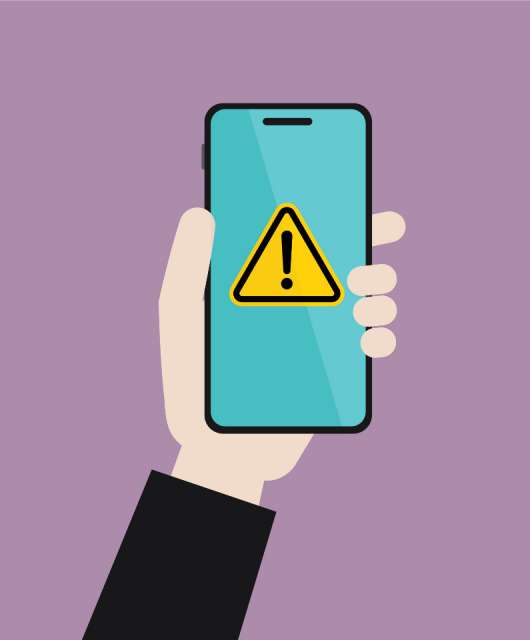


10 comments
While nice in theory, in practice this creates more issues than it solves.
I found this article after having just faced 8, yes eight Captcha challenges; find the bicycles, identify the traffic lights, find the crosswalks. The problem here is, who decides what constitutes a traffic light? does it include the post, the arm, the 3 pixels of shadow just visible in the next square.
What exactly is a “crosswalk”? – I presume it to be a pedestrian crossing, but that’s the point. I shouldn’t have to look up foreign terms as part of my logon.
Please tell me this can be opted out of, or do I consider moving to a less “gameshow” solution.
When you’re in a hurry to address a major issue, the last thing you need is a pop quiz or game of eye-spy.
HOW DO I TURN IT OFF? I’m over here trying to talk to people on omegle and after someone skips me or I skip them it makes me do 2-3 recaptcha I have spent an hour trying to remove it and nothing works. Please help.
I am very please with the information thank you
Also happy
Thank you, very informative! 🙂
How do I access a captcha?
how can I be recognized by captcha, because there is some web link tell me that I’m not recognized. Thank you. Ernest from Rwanda
I often fail the captchas the first time i enter one. Even ones thatvseem straigjt forward. I dontbmean the ones with puctires, i usually hsve the good judgrmentbto pass those, ( altho ‘i have see visual captchas that are ambiguous.) O fail thevtests with letters. Especoslly the tests that combine capitals and little letters. (Or maybe texts with thr letters ‘i’ s or “l” s .perhaps i’m not sure that,s thevonly problem whuch someone sughested migjt be.) It makes me feel old. I
Somewhat old but still sane and very litetate. A captcha shouldnt be so hard. I guess computers are clever. But its difficult to be among the failing 20%. There have been sotrs I have had to anandon b/c I nevet suvcerded on the letter -number captcha.
I need to edit my own typos.
I often fail the captchas that have alphabet letters and numbers, especially if its of capital letters and lower case letters. I have to sometimes give up on the site